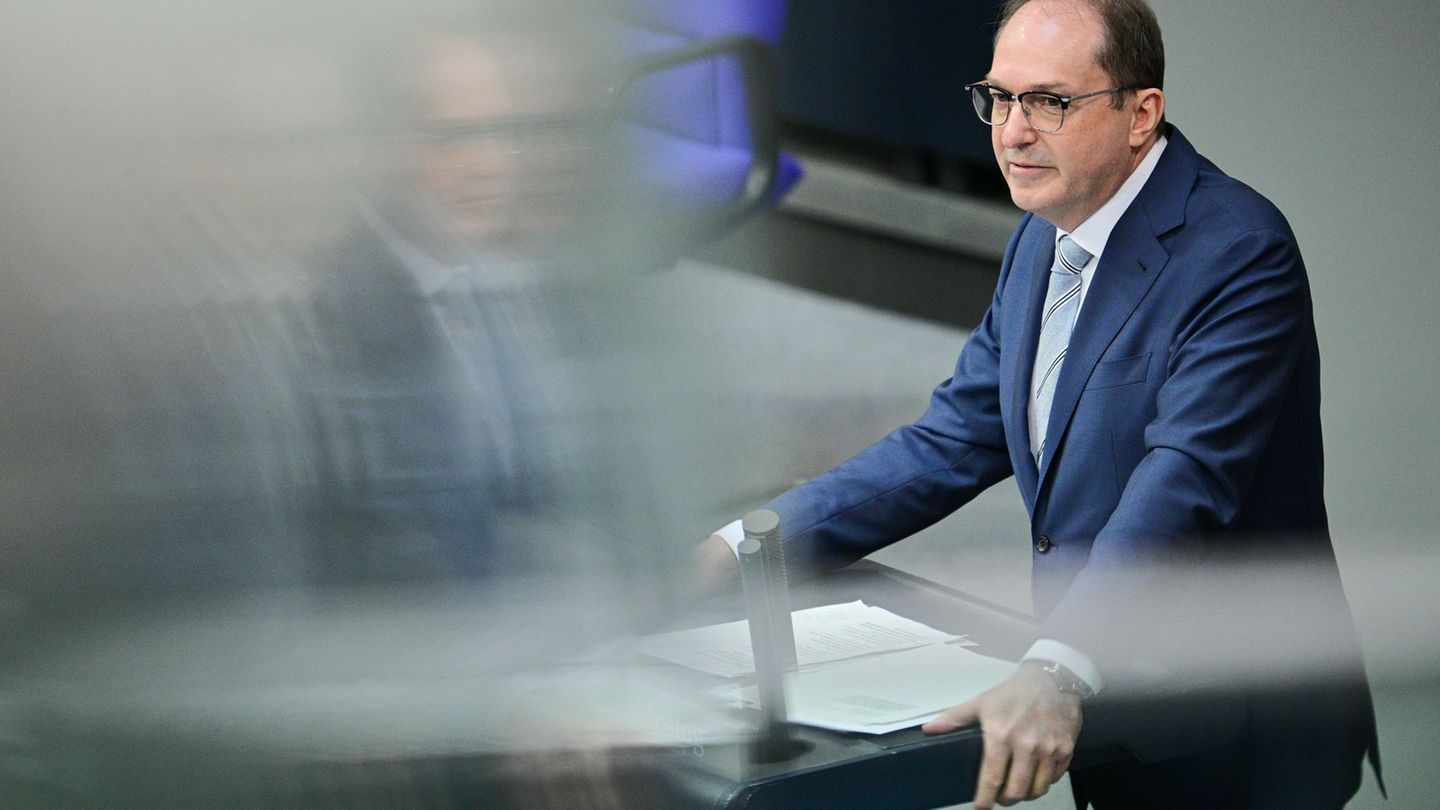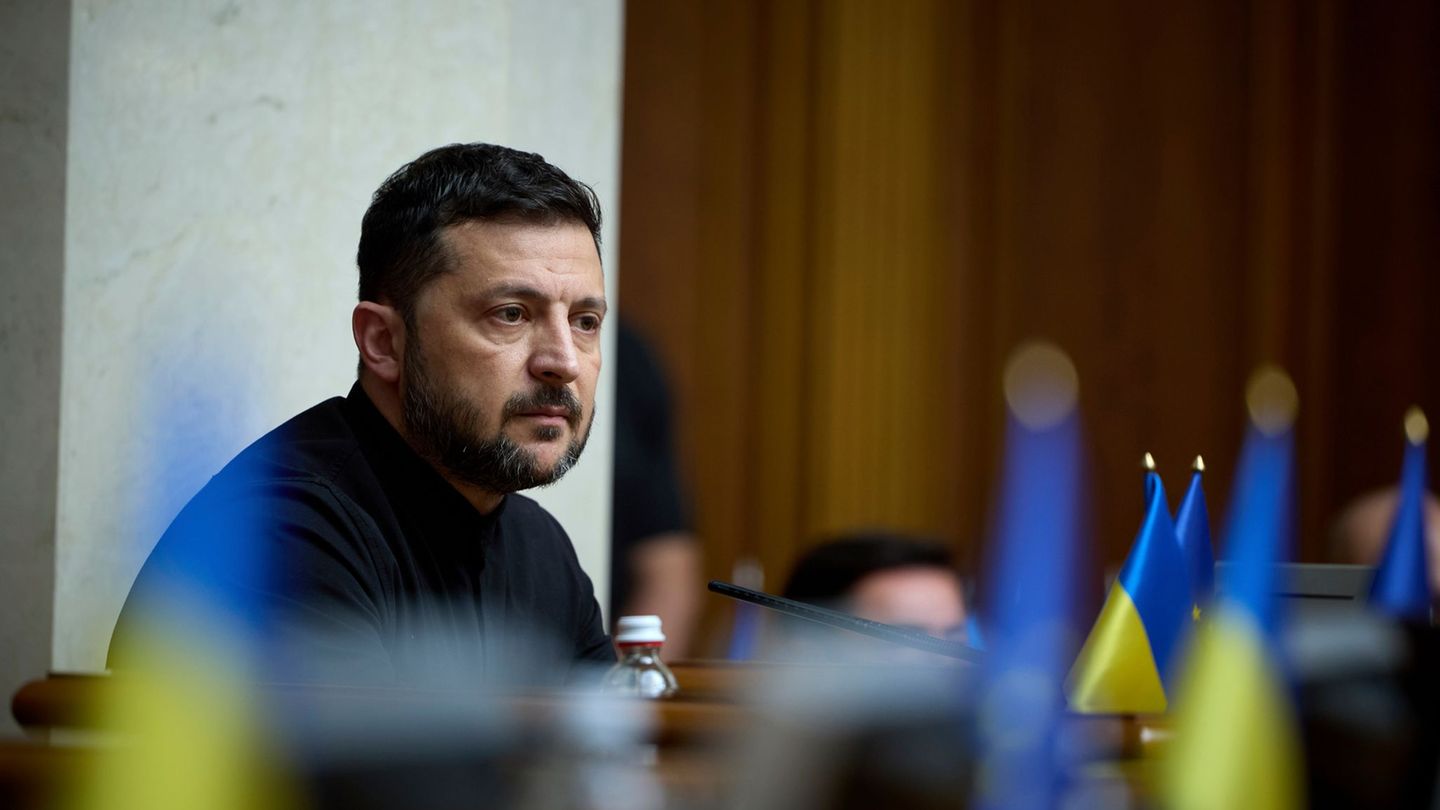Migration policy
Dobrindt: Change of politics has started – at the limits
Copy the current link
Add to the memorial list
More powers for the security authorities and more deportations: Interior Minister Dobrindt from the CSU presents the cornerstones of his program for the next four years in the Bundestag.
From the perspective of Federal Minister of the Interior Alexander Dobrindt, the tightened border controls arranged by him are a first step towards more order in migration policy. In the Bundestag, the CSU politician and several domestic politicians of the CDU announced that the additional powers agreed in the coalition agreement with the SPD would also be implemented quickly.
“The citizens, they expect a change of policy from us,” said Dobrindt. This has now started – at the German borders. A few hours after taking office, Dobrindt had intensified border controls last week. At the same time, he ordered that asylum seekers can also be rejected at the border.
In the Bundestag he said to the address of the SPD: “I know that this is another way for them than for us.” He was therefore ready for close cooperation. “Let us do this task together,” he called the politicians from the SPD and CDU responsible for domestic politics. Because the irregular migration endangers “the stability of our country”.
Gottfried Curio from the AfD criticized the new measures at the border as insufficient. “If you can reject everyone, then all those who are unauthorized have to go out again, because they were to be rejected,” he said.
The Green Group Vice Konstantin von Notz accused Dobrindt that his change of policy was short-sighted. He said to the border controls: “In three weeks at the latest, massive personnel overload will in fact end your measures.” The left-wing politician Clara Bünger doubted the legal basis for rejection of asylum seekers. “This is an introduction to a rule of injustice,” she said.
The Federal Minister of the Interior also announced more returns from those who are subject to leave. “We will deport to Afghanistan and Syria,” he said. The new federal government will also introduce a permanent exit arrest for dangers and severe criminals that require departure, so that there will only be two options for these people in the future: “detention or home flight”.
No control receipts from the federal police
The security authorities’ toolbox must be better filled, said Dobrindt. In the past, police officers have been put under general suspicion too often. He rejects ideas such as control receipts, labeling obligation for police officers and complaints.
A draft of the traffic light government for a new Federal Police Act stipulated that people who are questioned by the federal police at airports, train stations or trains can be issued so-called control receipts. The police officers’ duty of labeling was also planned in the reform – which was no longer adopted. With the control receipts, they wanted to prevent “racial profiling”. One speaks of this when people are controlled by the police solely because of their physical appearance or ethnic characteristics. Such unequal treatment violates the ban on discrimination under constitutional law.
The Federal Government will implement the memory obligation for IP addresses to combat serious crime, said Dobrindt. And: “We will expand the powers of our news services and ensure efficient and effective data exchange between the services.”
SPD MP complains Lücke in the coalition agreement
The SPD MP Lars Castellucci emphasized that it was important to never judge or suspect entire groups, because “so we only drive people in the wrong direction”. He criticized: “In the coalition agreement, Islam has never been named as a normal component of religious diversity, exclusively Islamism.” This is a failure.
dpa
Source: Stern
I have been working in the news industry for over 6 years, first as a reporter and now as an editor. I have covered politics extensively, and my work has appeared in major newspapers and online news outlets around the world. In addition to my writing, I also contribute regularly to 24 Hours World.




